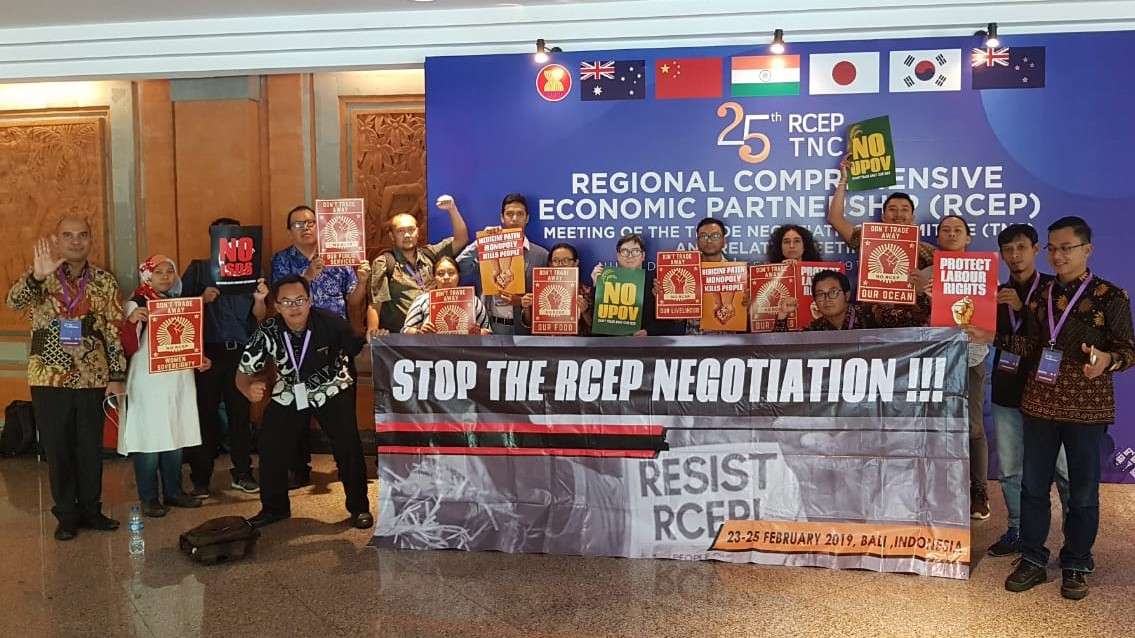Good morning. My name is Joseph Purugganan. I am the head of the Philippine office of Focus on the Global South, a regional progressive policy think thank that has been looking at trade and investment policies in the region for nearly 25 years. We thank you for the opportunity to address the working group on investments to share our concerns.
Investment is an important driver of development across Asia and the Pacific. While there is a strong impetus for many governments to attract foreign direct investment into their respective economies, much less importance has been given on making sure that these investments serve important national development goals like addressing poverty and inequality; that these investments do not compromise the fragile ecosystems; and that projects do not erode peoples’ rights to land and territory, to health, and to decent livelihoods, among others. Furthermore, governments have the responsibility to ensure that policies are in place that would ensure that positive outcomes from investments materialize, and the benefits shared.
I, therefore, raise three concerns against a comprehensive and ambitious investment chapter in the RCEP.
The first concern is on the impact of RCEP on the ability of States to regulate investments. We oppose provisions that prohibit performance requirements. Many legal experts have pointed out that there is no obligation under international law to include performance requirements in free trade agreements (FTAs) or bilateral investment treaties (BITs). States must be given the flexibility to craft economic policies that serve their own development agenda.
Second related concern is over the investor state dispute settlement mechanism, or the infamous ISDS, which has already been characterized elsewhere as a toxic element of trade and investment agreements.
We oppose any treaty that would grant broad privileges to investors, including granting them the right to challenge laws and court decisions designed to protect our health, our access to land, our right to decent wages, and protect us from climate change.
Two important issues for the Philippines and developing countries in general are (1) access to cheap and reliable energy sources, which are alternatives to dirty coal, and (2) the generation of revenues from taxes–both in support of sustainable and equitable development.
The Philippines is facing one ISDS case that compromises both development goals. The case—put forward by a consortium led by Shell, the giant transnational oil and gas company—questions the position of the Philippine’s Commission on Audit (COA) with respect to rightful claims by the government to its revenue share arising from the underpayment of taxes from the investment project the corporation—an under-collection that amounts to P53.14 billion ($1.19 billion) from 2003 to 2009.
The position of the COA is consistent with the provision in the Philippine Constitution that guarantees the government a minimum of 60 % revenue share of Malampaya gas field revenues. The consortium claim that the income taxes that they need to pay be taken out of the government’s revenue share is patently unconstitutional and unjust.
We believe that ISDS is a failed and dying system as evidenced by the number of countries who are questioning the ability of the mechanism to ensure a balance between the state rights to regulate investments, and the expectations of investors for protection of their investments. These efforts show that governments are now taking a more balanced and cautious approach towards trade and investment treaties; and that public policies are paramount over corporate interests.
We therefore urge the RCEP participating governments to withdraw from this system. We call on governments to reject the inclusion of ISDS in RCEP.
Finally, the TNC chair made reference to the need to strike a balance between private and public interest in these talks. In light of the imbalance of power in favor of companies over communities, the enormous economic power wielded by companies, some of which have capital bigger than the GDP of some countries in RCEP, the key point I believe is not balance but justice. To seek justice is not to give equal consideration to the interest of those who already wield power, but rather in affording preferential treatment and primacy to the interests of the weak. Decisions must be based on addressing injustice in order to tilt that balance infavor of people.
[Photo: Trade justice activists demonstrate their opposition to the RCEP trade negotiations taking place in Bali, Indonesia. ]








